Although I didn’t go to Uganda for the purpose of hospital volunteering, while I was there, I spent a few days a week volunteering at the local hospital Holy Cross Orthodox, in a nearby village, Namugoona.
Early in the morning, I’d ride a bota bota there, sidesaddle, for about a dollar. It was a unique experience to see the hospital there compared to American ones. I am a registered nurse, specializing in cardiac care, and although I’m not working as a nurse now, I’ll always have an interest in the medical field and I love the adrenaline rush of taking care of really sick people.
I have mixed feelings about volunteering abroad, but I think that if you have a true skill set that can help people, you pay your own way, and you benefit a group of people in an unselfish way then there’s no harm done. I was in Uganda for “tourism” and did some volunteer work on the side- which I think is something anyone could look into on their travels. What I don’t believe in is having no skill set, asking people to pay for your trip for you, going for the wrong reasons, and not truly benefitting the people you visit, because actually short-term volunteers can bring instability. In the future I’ll be posting more about controversially dubbed “voluntourism” abroad. But back to Uganda…
Whenever anything went wrong at the hospital in the states, like the computer charting system was down, I would remind myself at least we have patient charts. It would take ages to explain the differences between hospitals in Uganda and America, so I’m just going to stick to the biggest most noticeable ones. I know that these employees do their best with what supplies they have and I don’t judge them at all; I just want to share my experience.
Differences between hospitals in America and Uganda
Doctors are trained a lot less hands on in Uganda than in the states. They learn mostly from a book then get straight to work. Sometimes I didn’t think they were careful enough with stitches, and weren’t doing basic tasks like checking vital signs or listening to the heartbeat of a child who’s mother said “his heart seems too big”.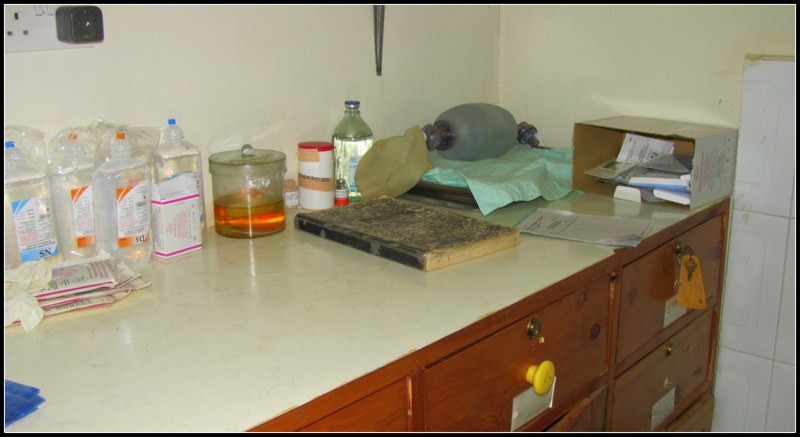
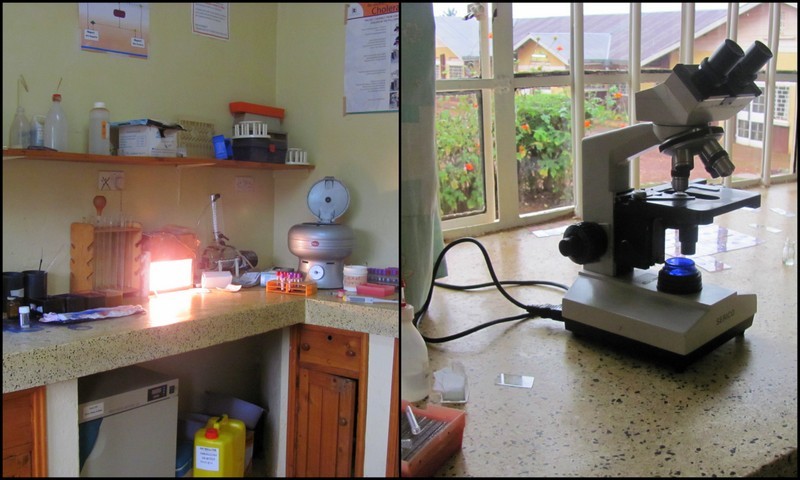 The lack of supplies. Gloves weren’t always used, needles were left in IV fluid bags and reused to flush IV’s, and in general supplies were very different from the states.
The lack of supplies. Gloves weren’t always used, needles were left in IV fluid bags and reused to flush IV’s, and in general supplies were very different from the states.
The lack of empathy. If a patient couldn’t afford treatment they weren’t getting treatment. This includes a teenager who wrecked on a bike. It includes a twenty something year old who came in for a circumcision and couldn’t afford the oral pain medicine, and came back crying asking for help. It was also hard to watch parents hit a child that cried getting IV’s placed or getting stitches.
When sedated from pain medication, in order to get stitches or whatever else, the doctor doesn’t wait for the patient to wake up and take vitals to make sure it all went okay- the patient is sent out immediately after, being carried in the mothers’ arms. This is because they can’t stay or they’d have to pay inpatient care.
The “theatre” or OR was a very unique experience! I worked for 2 years in OB/GYN taking care of moms and babies after delivery. I have seen cesarean’s and women give birth…no problems. Here, I almost fainted and had to leave. It was done much quicker. The scrubs were ironed to sterilize, and as for your sterile feet, you can either wear boots or go barefoot. Did I mention instead of scrubs I would wear a skirt and flip-flops, which is the appropriate wear for females.
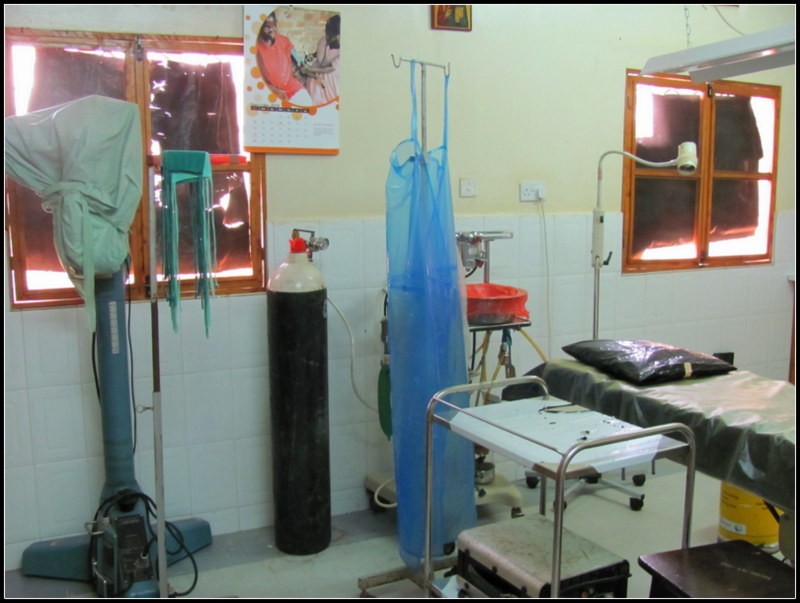
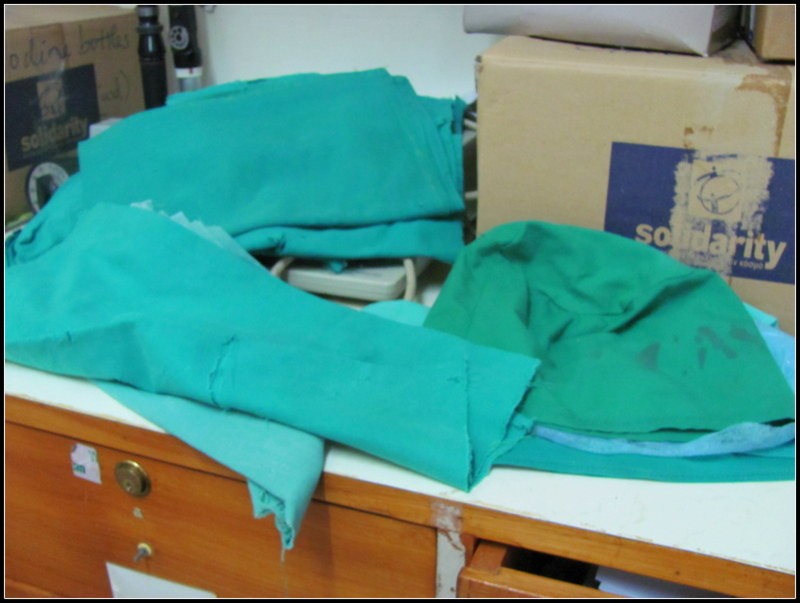
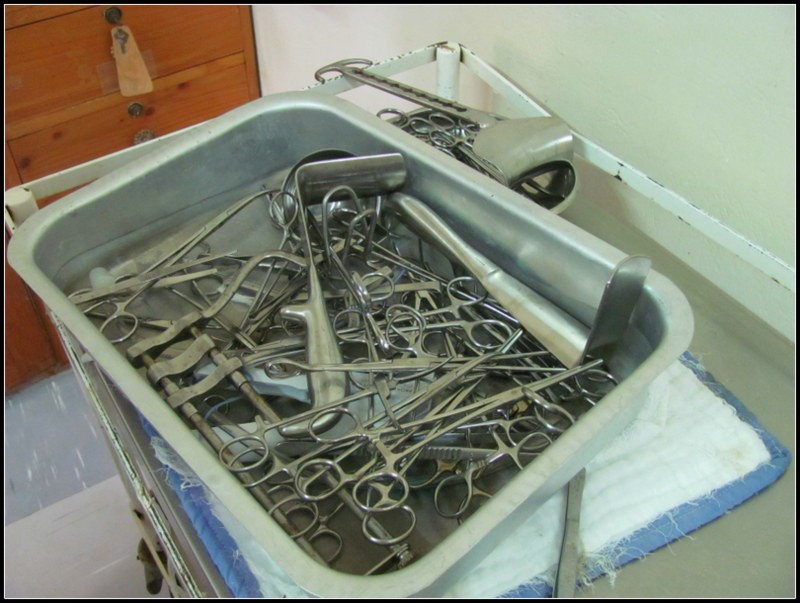
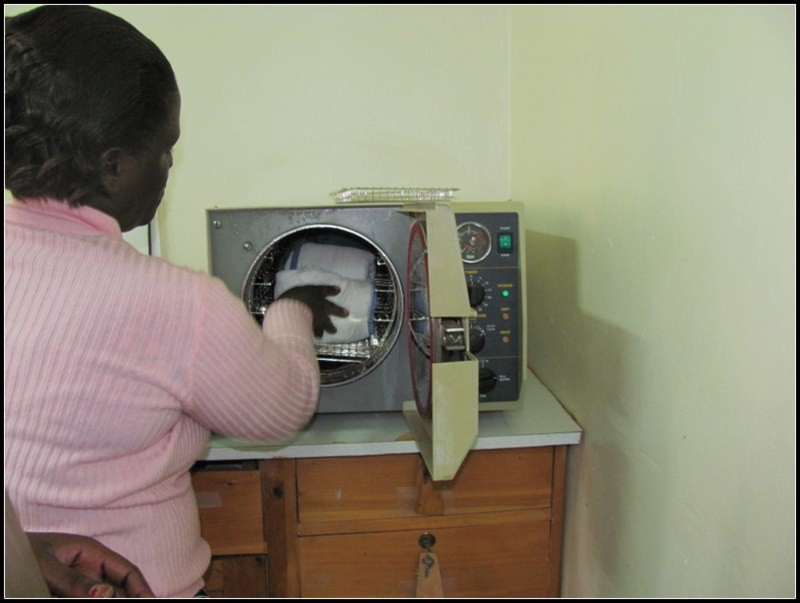
Malaria treatment was frustrating. Patients were given antibiotics sometimes and that is not how you treat malaria. Antibiotics were given for anything- and that’s really bad for your body. These patients will build up a resistance, which will cause problems later in life.
There was no real assessment of patients. It was word of mouth. If the mother said “my baby is not eating, seems tired, cries a lot, and I think she had a fever last night” the baby is diagnosed then and there with usually malaria. They will do a test sometimes with an old school microscope, after they dry the blood smear with a light bulb. They don’t check blood pressure or heart rate, and most didn’t have a stethoscope on them.
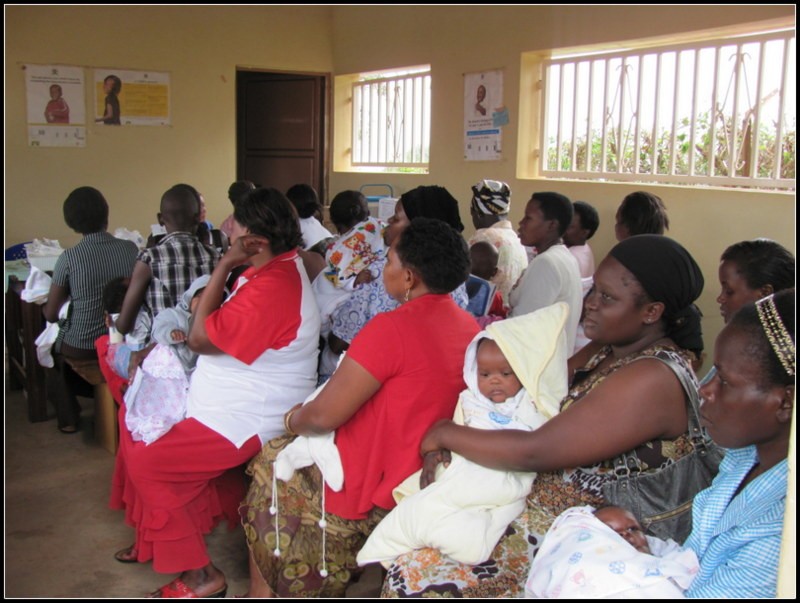
The nurses don’t have to do as much. Families take care of the patients and bring them food. Nurses will give medication and do trauma care/wound dressings. Many times, the doctor did that. Not to say the nurses aren’t educated, because they are. But there was a lot of sitting around and tea breaks because they didn’t have as much delegated to them by the doctors. Sometimes one just wouldn’t show up, maybe because it was raining. They nurses I met were all very smart and could have done more if they were instructed to. I was there as a student and was still learning at the time, so it seemed very hands-on. But now, looking back in comparison to working in the critical care units, it was not hands-on.
For emergencies the patients were sent to the capital of Kampala, Uganda, because this local hospital was very small and didn’t have the test equipment. It’s a little scary to have to get an hour to the nearest hospital for a heart attack or snakebite. I had a green mamba waiting for me at my front door one day when I came home. All the neighborhood kids who usually love snakes ran! That’s how I knew it was bad. Luckily, the groundskeeper shooed it off… therefore, I got no sleep for days thinking it would come back. My daily life in Uganda was really quite calm but by immersing myself into “work” and culture, I got to learn so much more.
It was incredible how one doctor was there at a time, 2 or 3 nurses, pharmacist, lab tech, an accountant, manager, and cooks ran the whole hospital. Granted, it was small but in comparison to say, India, where it takes 30 people to change a light bulb, it was like magic that they worked everything out.
There was less responsibility and liability on the staff. No one is going to sue, there is no charting, and they can refuse care if they want to without paperwork. Strange! They don’t ask detailed histories on the patients or do in-depth discharge teaching.
IV fluids treat everything from electrocution to malaria, the flu, a small cute, a rash… you name it! Fluids for everyone!
I loved my time at the hospital and really loved all the nurses I met especially kind pregnant Lucy. I think what they do is remarkable with so little support and supplies. It’s truly amazing.



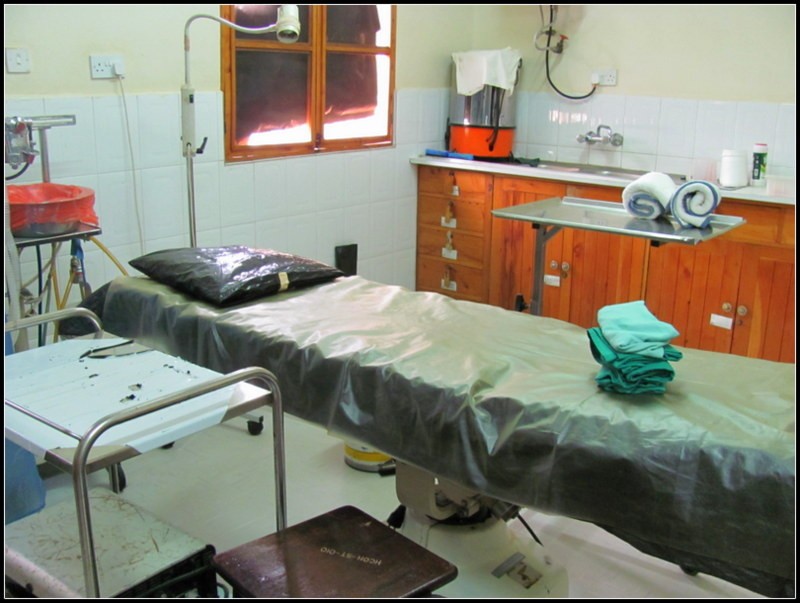

What a unique experience – I was really fascinated reading all of this. It makes me thankful, as I definitely go to the doctor on an as needed basis and am very American in my need for sympathy. Your way of volunteering abroad provides such an inside look at a different culture.
It was an eye-opener & actually prepared me for being a patient in India which is far far worse.. Maybe I’ll do a write up of the time I told the MD my toe nail was infected and before I could agree he RIPPED THE WHOLE BIG NAIL OFF. like I almost punched a nurse. Even now thinking about it is hell. I could have killed the man.
Wow, what an insider perspective! I can’t imagine that anyone is actually better off for going to the hospital there. Do they usually give birth with a midwife at home instead of going to the hospital? Those birthing procedures sound pretty harsh! :O
I probably came off too harsh writing it- they do a great job with wound care (which is major with so many bike accidents) and regular deliveries go well. Surprisingly the c-section went fine for the woman and they all laughed that I couldn’t handle watching it. I guess it’s just a different way of doing things! In the western world women would be worried about their scar in a bikini.. but with this c-section scarring was not a priority- same with stitches on kid’s faces. In the states we would get plastic surgeons in the ER for facial work. Some of the women do deliver babies at home.
Your post makes me appreciate the abundant supplies and my co-workers at the facility where I work!
Oh yeah, I never appreciated OSU (where I was at that time) more than when I got back!
Wow – I was hanging onto every word in this post! This kind of stuff is so interesting to me. I’m sure it must have been a shock after North American style care. I am no health professional, but even the hospital and care clinics here where I live in the Caribbean seem awfully substandard compared to what I was used to in Canada, and they are WAY above what you’ve described above. I think the whole ‘no suing’ has quite a bit to do with it :)
It was a shock for sure, but really prepped me for what it was going to be like being a patient in India. Like I told Alex in a comment below, I went in for an infected toe nail that’d been stepped on and before I could agree or ask questions the MD took pliers & ripped it off like BAM. and I fucking FLIPPED out!! It was the most painful thing that’s ever happened and he laughed like it was just another great morning in the office. There’s no signing “consent forms” and going over past medical history, etc… if that were the state the MD would have been fired and sued until he was broke by someone I’m sure.
Very interesting to get your observations of this rural hospital. It’s also very interesting how much you have accomplished in your short time on this planet.
You profess to be a party girl but I am sure your destiny will be much greater than that. MAYBE Mother Teresa in heels?
Nursing seems like an eternity ago- I went to school for 4 years & worked on & off for 1.5 before quitting entirely, but I’ve just realized I’ll be 25 this summer. Time is flying by!
Rachel this was such an interesting post! I could have read on and on. I think I’ll actually go back and read it again. It’s so fascinating to hear about the differences in the hospitals, medical care, facilities etc. It must have been so hard to experience things that you have been trained to do, not being done (or things you’ve been trained not to do, being done!). But what a fascinating experience.
Wow, I’m so surprised you guys are loving this post. I honestly thought it would fall on dead ears because it’s so specific to nursing. I’m glad you enjoyed reading it. It really was an awesome experience.
Oh yes… thank you for writing this. Having been in India for two weeks now, I have come to my own conclusions and understanding not only about volunteering abroad (voluntourism) but also charity as a whole. I’m so glad I am experiencing this side of life and I feel like I can relate to a lot of what you say in this, even though you are talking about a different country altogether. I have a hard time with the hitting – there is lots of it here! The teachers hit the kids, and the kids hit each other. I don’t allow it in my classes, but I know I won’t stop it. They also don’t have great medical supplies here. There are a couple of nurses volunteering here for a month, and most of what they have is shipped from Canada. I brought a whole suitcase with me for them – 50 pounds of clothing, books, medical supplies and vitamins. They make do with what they have, and sometimes it’s not very good, but there is no other choice. I am eager to read what you have to say about voluntourism as I have my own opinions about it! This organization I am with requires a minimum of 2 months to volunteer here except in special cases (like the nurses) and I have paid my own way here. So it sounds like we are on the same page. There is a lot of garbage volunteering out there that does not get the dollar or the energy to the right hands.
I was just telling Alex from Alex in Wanderland that I haven’t wanted to post my voluntourism post b/c it’s a little harsh sounding right now and opinionated. Maybe in a few months haha I’ll put it up. Hope you make it down to Goa, I’ve just e-mailed you
Amazing post Rachel, thankyou for sharing your experiences! What a heart moving post, so much love for the nurses who are putting their heart and soul into caring their patients with a lack of equipment, they are a true god send to those they are treating.
x
A god send they are!!
Awesome Post! I’m a german nurse and I’m currently working in Australia. I think it’s so interesting to see how different the healthcare systems and the work of nurses in the different countries work. I’d love to volunteer one day as well! You learn so much working in a different country!
Do you like working in Aus? I’ve thought about it- I’ve heard it’s not too difficult to get a work visa and the hospital will set you up with one? Volunteering is great except that deep down I knew I wasn’t making any changes for them- even with things they were doing wrong.. one little american girl telling them “No” isn’t going to make a difference .
I work for a nurse agency, so I work in different hospitals and the money is pretty good (much better than in Germany). Most of the time there are about 7 patients per nurse, in Germany it’s sometimes more than 10. I like it more than in Germany!
Wow, I totally know what you wrote about in your post. I was volunteering at a small health centre in Gambia for two months in 2012 and I had pretty much the same experience. It was one of the best two months I ever had and definitly wanna go back to Africa to live/volunteer.
I’d love to live in Africa!
Well am a Ugandan reading for bachelor s degree in US. I did volunteer in Ugandan hospitals before college and agree with all you say. Actually it was the other way round for me when I started My clinicals,getting used to the American way of providing health care. I lived your article word for word.
I’m glad the post resonated with you. As a Ugandan, it’s great to hear from you that what I experienced is the way it really works there. Good luck with your studies!
This is so interesting, I’ve always fancied working abroad (I’m psych though, not general) but don’t know how I’d cope emotionally with the differences in some cultures- not being able to help those desperately in need etc. x
Great article, I lived in India for 12 years and ran an intensive care unit for babies. I am now on my way to Lira, Uganda to work with the Peace Corps for a year and to teach nursing so looking for anything that will give me a better idea what to expect. So glad I came across your website! I am an RN as well with a Master’s in Nursing education so will be teaching at a small and relatively new University. So happy to have come across your blog! Best of luck in your adventures.
wow that must have been an interesting experience in india. Good luck in Uganda, it’s a beautiful country.
Great post! I know it’s more than a few years old, but in this stressful time of COVID-19, and living in Uganda, this American nurse stumbled upon your experience and laughed out loud. Every word is true. Note: I am no longer working as an RN. I left the field to mentor and care for vulnerable teenage girls. I have 17. I am hoping to start a maternal child rescue ministry. Blessings to you!